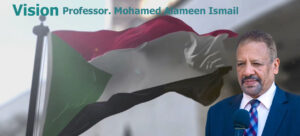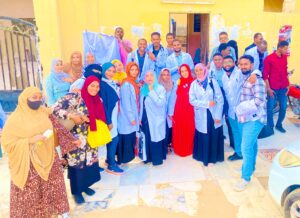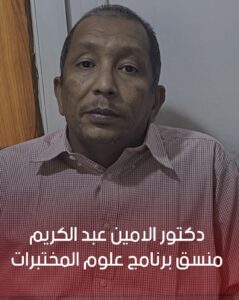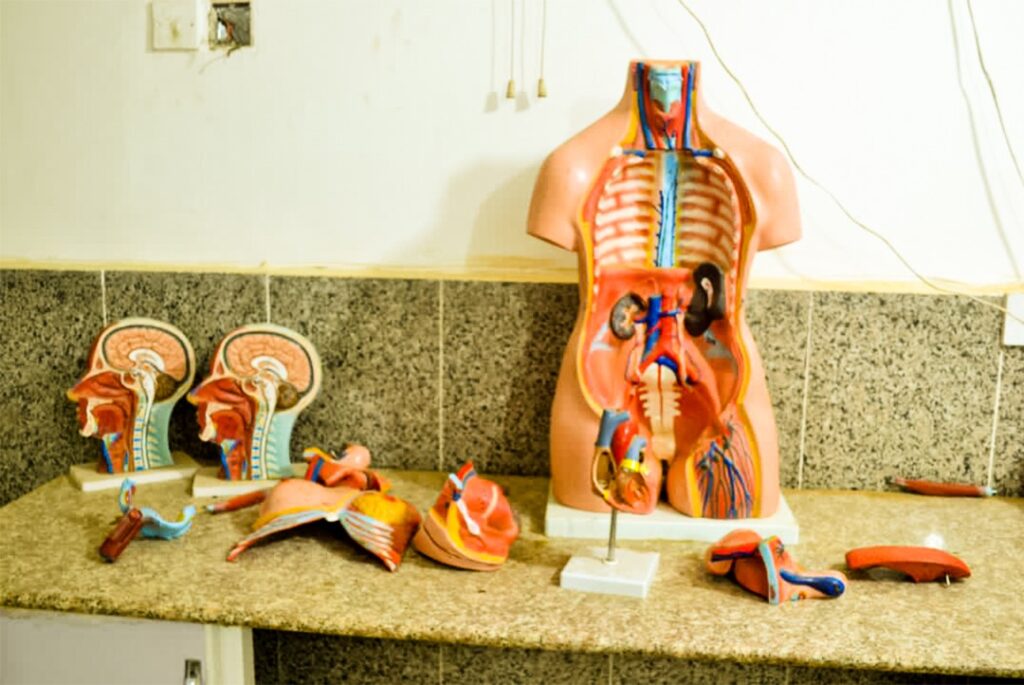
This new university college is not so much meant to be another higher education institution as it is meant to contribute more substantially to the promotion, modernization and advancement of higher education values.
Our strategy is to modernize the curriculum content and curriculum structures in a way that would highlight the uniqueness of our institution and adopted the most modern quality standards according to the most sophisticated global systems.
The mission of Zamzam university program of medicine- is to participate in the development and promotion of its community through high quality and cost effective education, health service and research
Vision statement
Zamzam University College (ZUC) MBBS program of medicine will be one of the leading Sudanese medical program with an international reputation for its undergraduate, postgraduate and continuing professional development (CPD) program. We hope that this program will be seen as a key partner by the Federal Ministry of Health Services, Government, Charitable and private organizations for the development of new and innovative national training program for staff from the entire healthcare and associated professions.
We aim to be widely regarded as an example for engagement and effective joint working to the benefit of the public, patients and development of staff. We will encourage research and knowledge transfer
Values:
Honesty,
Loyalty
Faithfulness
Sincerity
Satisfaction
Objectives of the MBBS
Core Competencies of Graduating Physician
Our general objective is to train and graduate doctors who can work in the different fields of Medicine to be :
- Good Health Manager and Leader
- Personal and Professional Developer
- Good Communicator
- Able to work in the different fields of Medicine
- Able to conduct scientific research to solve community health problems
- Equipped with professional ethics, communication skills and the necessary professional skills, to serve his/her patients and community.
- Able to establish an effective partnership with the different stakeholders to implement the reviewed and updated curriculum that serves the community and helps in solving community health problems.
Specific Objectives:
By the time of graduation, the graduate is expected to acquire the following competencies and characteristics: being able to:
- Be fully committed to the medical profession.
2- Take a proper history to be able to diagnose a health problem.
3-Conduct a proper physical and mental state examination to be able to assess the patient and diagnose his health problem.
4-To interpret clinical findings in the history and examination to formulate a provisional diagnosis.
5- Diagnose medical problems and disorders making use of the different available investigations; laboratory investigations, radiological investigations etc…
6- Prescribe and conduct proper treatment approaches to manage medical problems and disorders.
7-Use a scientific knowledge in diagnosis and management of health problems, according to known methods of problem solving and integration, and explain the scientific structural (anatomical), functional (physiological, biochemical), morbid (microbiological, pathological), and therapeutic (pharmacological) background related to the problem.
8- Manage emergencies e.g. road traffic accident, burns, toxins etc… and decide and act properly on cases needing referrals to specialized centers or personnel.
9- Write a medical report about the referred cases.
10-Deliver health promotion, preventive and rehabilitative activities to all members of communities.
11- Observe in his/her practice, the health professional ethics which agree with the nations values, believes and norms (as stated by the Sudan Medical Council ), and maintain good and honest relations with his/her patients, their families and his/her colleagues across all sectors invowed in health.
12- Respect patients’ rights and confidentiality.
13- Acquire the skills of appropriate ethical counselling and advice in breaking news to the patients or their relatives in the different critical cases or conditions.
14- Communicate with individuals and groups in health education and sessions.
15-Adhere to (health team) approach, acting as efficient member, capable of its leadership, dividing labor and responsibilities among the members, and ensuring both effectiveness and homogeneity among the members.
16-Communicate and collaborate with members of the health team in a way that helps to achieve the objectives of the health care for individuals and the communities.
17- Encourage community participation and act in recruiting various sectors in defining heath and health related problems, planning and providing suitable solutions, recognizing the community believes, ethics and traditional practices.
18-Administer a health “unit” or “center” efficiently according to scientific, medical, statistical, economic and legal bases.
19- Continue to consider elements of efficiently, costing and economic implications in his/her diagnostic and therapeutic choices.
20- Acquire the skills of teaching, learning and communication efficiently to carry out his/her duties in health education and in winning the confidence of patients and their families and societies.
21- Acquire the skills of independent learning, and contribute to availing opportunities for planning and implementing continuous education activities to upgrade his/her own abilities (specialize, lifelong learner) and those of his/her colleagues in the health team.
22- Carry health or health-related research, alone or with a health team, using scientific methods known in such activities.
23- Observe the research ethics.
24- Use computer in word processing, statistics and graphics to achieve success in other objectives of his/her career.
25- Continue, recognizing the needs of the society for certain specialties, particularly general practice and family medicine.
26-Have the skills of writing and/or appraising a scientific article.
27- Manage and contribute in the management of disasters
The Zamzam college administration shall conduct continues evaluation for all components of the teaching-learning process including evaluation of the academic programs, the teachers and student’s performance
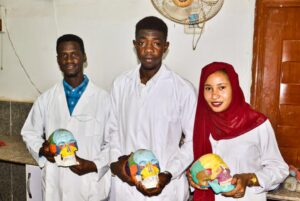 |
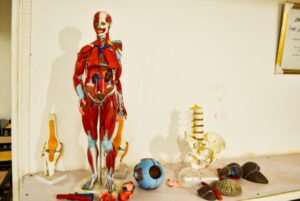 |
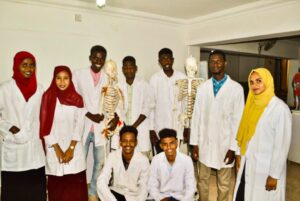 |
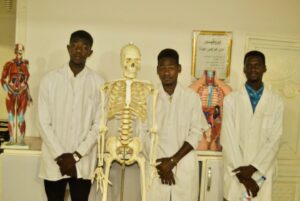 |

